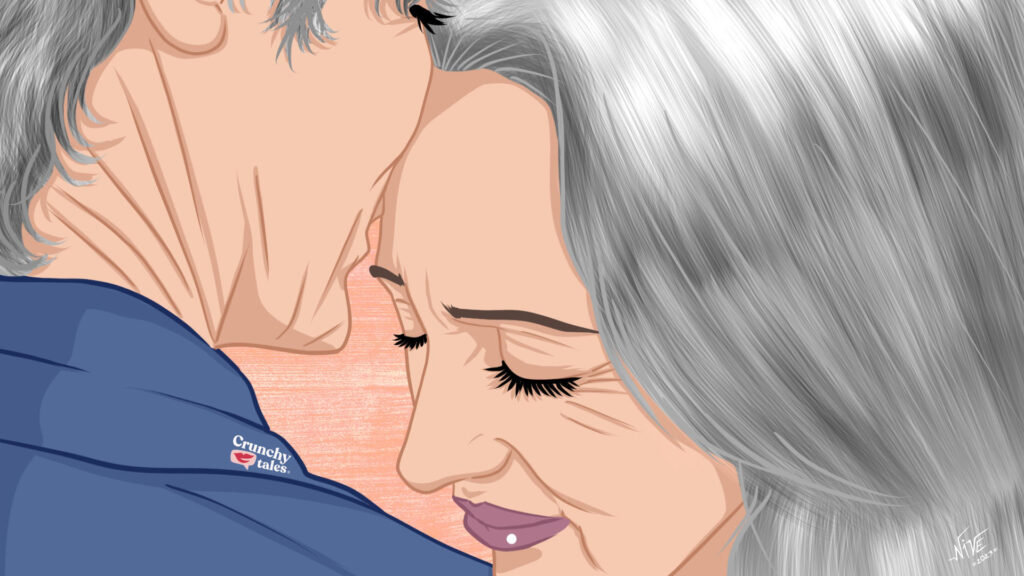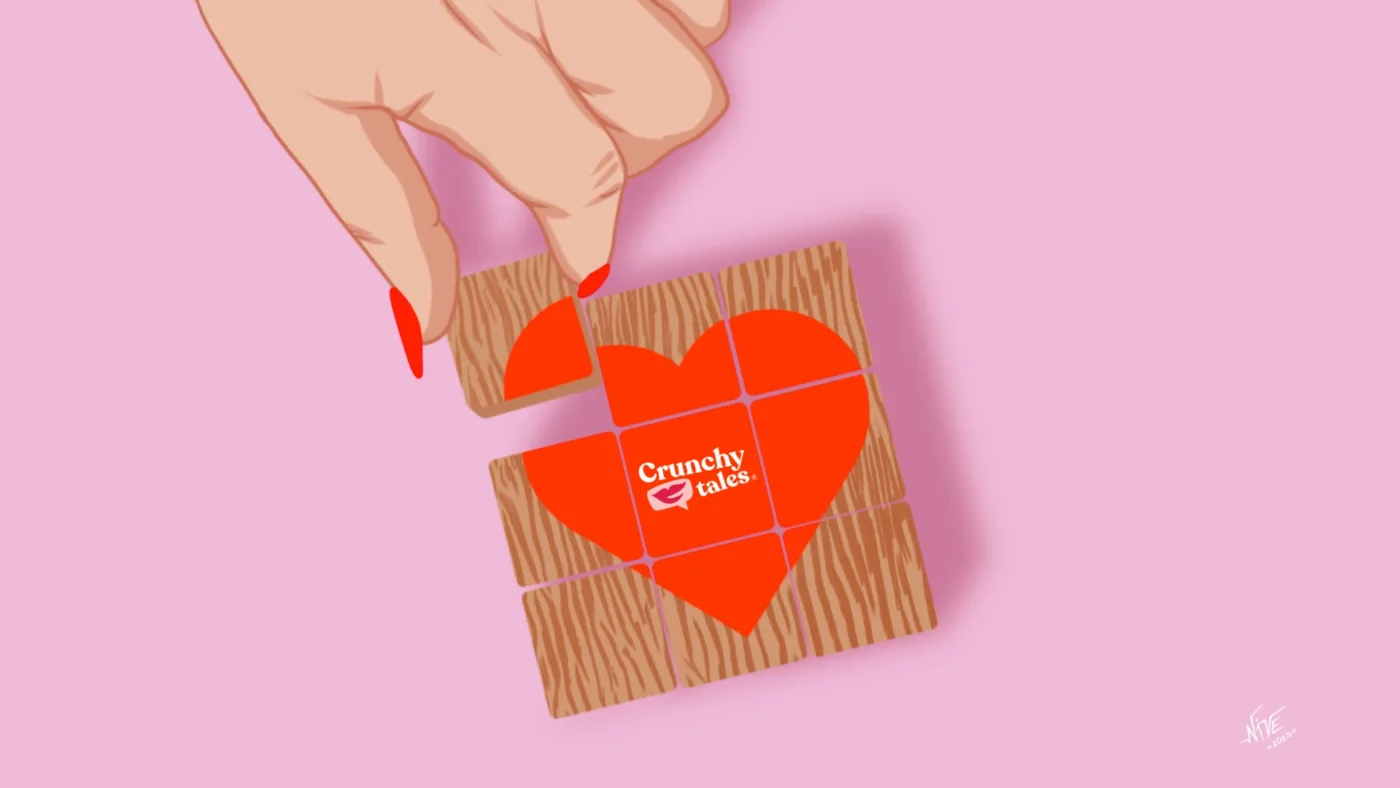Feeling Stuck in a Relationship at Midlife? 5 Steps to Move Forward
Long-term love, whether it’s a decades-long marriage or a committed partnership, naturally comes with its share of highs and lows. But when the connection starts to feel more like a routine—or worse, a burden—than a bond, it’s easy to wonder if staying makes sense anymore.
Before making any life-changing decisions, take a breath. Our expert, the Midlife Lifestyle Coach Kiran Singh, offers thoughtful insight into what’s really going on beneath the surface—and how to know if it’s time to walk away or find a way back.
Midlife can be a powerful reckoning. It’s the chapter where we pause, look around at the life we’ve built, and quietly ask ourselves: “is this really what I want for the rest of my life?” For many midlife women, that question echoes most loudly in their relationships.
Whether you’re in a long-term marriage that feels more like cohabitation, navigating the complexities of an empty nest alongside emotional distance, or realising you’ve outgrown someone you’ve shared decades with – that sense of “stuckness” can feel heavy, confusing, and isolating.
But stuck doesn’t mean broken. It means attention is needed, and with reflection, honesty, and courage, you can move forward.

Why Midlife Triggers Relationship Stagnation
According to Dr. Margie Lachman, a leading researcher in adult development, midlife is a peak period for self-reflection and life assessment. This stage – often termed the “second adulthood” – brings with it a powerful need for authenticity, meaning, and personal growth.
Add to this hormonal shifts (especially during perimenopause and menopause), changing family dynamics, career transitions, and increased awareness of our own mortality – it’s no wonder our relationships can begin to feel strained or misaligned.
Feeling stuck in a relationship often creeps in gradually, marked not by dramatic events but by a slow fading of connection. You might notice that conversations with your partner have become purely practical—about groceries, appointments, or chores—while the deeper, more intimate exchanges have quietly disappeared.
That emotional closeness you once shared feels distant now, as if you’re talking across a growing divide. Without realizing it, you may begin to fantasize about a different kind of life—one where you feel more alive, more seen, more understood—or even imagine being with someone else entirely.
Conflict, when it happens, also tends to circle the same unresolved themes, leaving you frustrated or emotionally exhausted. Sometimes it’s easier just to avoid it altogether, even if that means swallowing your needs. As time goes on, your lives start to run in parallel rather than together—you share a home, perhaps even a bed, but your inner worlds rarely touch.
Does this sound familiar? These are not just surface-level complaints. They’re data clues pointing to unmet needs and emotional fatigue.
How to Move Forward from a Relationship at Midlife
It’s not uncommon to feel stuck in a long-term relationship, especially after several years together. But the goal here isn’t to rush toward a decision — to stay or to leave. That pressure can cause more confusion than clarity. Instead, the real work begins with coming home to yourself.
Step 1: Get Honest With Yourself
Start with radical self-honesty. Not blame. Not shame. But the quiet truth. These journaling prompts may help you clarify what you really want.
Ask yourself –When did I first start feeling this way? What am I craving most in this relationship right now? In what ways have I compromised myself to keep the peace? What do I need to feel emotionally safe, seen, and loved? If nothing changed for the next 5 years, how would I feel?
Step 2: Understand the Emotional Baggage
According to psychotherapist and couple’s counsellor Shireen Noor, relationship stagnation at midlife often activates childhood wounds and unresolved patterns, especially around abandonment, unworthiness, or emotional invisibility. These are deep-rooted layers that shape how we show up in love and conflict.
Ask yourself – Am I responding to my partner, or reacting from old wounds? What stories am I carrying about what I “should” tolerate in love?
Midlife brings a wave of transitions for couples, all of which can stir powerful emotional and relational shifts. Our earliest attachments and the dynamics we witnessed in our parents’ relationships shape how we love, connect, and respond to challenge.
At this stage in life, many couples realise they’ve evolved and are no longer the people they once were. This doesn’t mean the relationship has failed—it means it’s time to approach it with self-reflection, compassion, and curiosity, not reactivity.
Ask yourself – What is this bringing up in me?
Ideally, you should sit with your partner, share honestly, and explore what’s surfacing but in case it’s becoming too difficult for both of you, consider working with a therapist or coach who can help you unpack these deeper emotional patterns. A qualified couple’s therapist can guide you both in exploring why these wounds are being activated and why you may be feeling stuck in your relationship.
Step 3: Get Clear on What You Want
Not just what you don’t want, but what you do want. Make two columns:
- “Non-Negotiables” (what you need in a relationship to thrive)
- “Nice-to-Haves” (what you’d love, but can compromise on)
This clarity helps guide communication and decision-making without second-guessing yourself.
Step 4: Begin a New Conversation
If safe to do so, invite your partner into an honest, vulnerable conversation.
Try – I’ve been doing some reflecting about where we are right now. I’d love to talk about how we’re both feeling – or- I’m noticing I feel disconnected, and I want us to feel closer. Would you be open to exploring that with me?
Be willing to listen, too. You’re not looking for a solution right away – just a space to reconnect.
Step 5: Choose Your Path – Intentionally
Sometimes, with effort and support, relationships can be reimagined. Other times, the bravest choice is to release one another with love and respect.
Whatever you choose, do it with consciousness. Not fear. Not an obligation. But from a place of deep self-trust.

If You Stay: Rebuilding Intimacy
Rebuilding intimacy requires a willingness to reconnect, not just with your partner, but also with yourself. It isn’t about grand gestures—it often begins with small, consistent efforts, like setting aside time each week for honest, uninterrupted conversation.
These “state of the union” check-ins can create a safe space to express feelings, share hopes, and clear misunderstandings before they grow. Equally important is finding joy in the everyday moments—taking a walk together, rediscovering shared hobbies, or simply being present without distraction.
Therapy can also play a meaningful role here, not as a last resort but as a proactive way to deepen connection and understanding. And through it all, nurturing your own happiness is vital. When you feel engaged and alive in your own life, that energy becomes part of the relationship too—reminding both of you that love, at any age, thrives on connection, curiosity, and care.
If You Leave: Honour the Ending
Leaving a relationship at 50 or beyond can be a deeply emotional experience, even when it’s your choice. Grief doesn’t always follow logic, and ending something significant—regardless of the reasons—deserves to be acknowledged.
It’s important to give yourself the space to feel that grief fully, without shame or self-judgment. Surrounding yourself with people who offer quiet, steady support rather than advice or opinions can make all the difference during this time.
Often, small personal rituals—like journaling your thoughts or performing a symbolic act of release—can help create a sense of closure and meaning, allowing you to gently turn the page. And while starting over might feel daunting, it’s not a sign of failure but a powerful act of self-respect.
At this stage in life, choosing freedom and truth over comfort or habit is not just brave—it’s a reclaiming of your own narrative. Whether you rebuild love from the ground up – or walk into something entirely new – this next chapter is yours to write.
Like this post? Support Us or Sign up to our newsletter to get more articles like this delivered straight to your inbox!







This Post Has 0 Comments